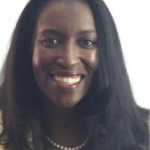African-American Women on Predominantly White College Campuses: In the Shadows of Eating Disorders
Existing literature on Black women and body image often addresses the misconception that these groups are well-protected from eating disorders (EDs). The misconception can be attributed to sociocultural models of eating pathology, clinical approaches to classification, conflicting research results, and the extant measures for assessing ED symptoms and risk factors.
Sociocultural models predict lower risks for EDs in Black women because of less cultural pressure to be thin and because they embrace larger, more attainable body ideals. Clinical approaches to classification may also fuel the misconception. Current DSM criteria and ICD codes are based largely on White populations, and therefore may not be as useful in identifying Black women with EDs.
Various studies have shown mixed results when comparing Black and White women on ED symptoms. Many of these findings are based on scores obtained from results of extant measures developed and validated with White samples. Because scores from these measures inform recommendations for further treatment, an important question is whether they are psychometrically adequate for use with Black women. Black women scoring lower on these measures implies they may not have EDs. Consequently, clinicians don’t always recognize EDs in Black women, so they’re less likely to receive referrals for further treatment. College counseling centers often include similar items to those found on these instruments on their websites to facilitate students’ self-assessments of their eating behaviors. However, many of these items focus on internalizing thinness. They may not be relevant for Black women attending predominantly White colleges (PWC) because they a) appear to be more vulnerable to binge eating and obesity, and b) these measures don’t always capture the complex issues affecting them that contribute to their vulnerability to EDs.
Black women are not monolithic. Their differences have led to critical issues that they grapple with among their own group members continually. These issues (i.e., hair texture and style, skin color, size and shape of body/body parts) often are a great source of tension and are largely unaccounted for by the extant measures.
Black women also experience acculturative stress events like racism and bigotry. These occurrences can be blatant or subtle. Often events are so subtle it isn’t immediately apparent something offensive has occurred, which can be profoundly distressing. Subtle racism is seen as a psychosocial stressor that erodes health through chronically elevated cardiovascular responses. Some researchers believe that acculturative stress, rather than acculturation predicts higher levels of bulimic symptoms among Black women.
General issues linked to EDs for Black women include biology, poverty, low food quality/availability, single motherhood, father/daughter issues, and individual experiences and traumas. They also experience some of the same co-morbid coping conditions (i.e., cutting, purging) as White women.
Black women attending PWCs must often navigate two different worlds simultaneously, which can be quite conflicting – “too White” for some peers of color, yet, perhaps “not White enough” for some of their White peers. We’ve learned that while it may be assumed they feel good about their curvaceous figures, sometimes they don’t. And while few would suspect them of having EDs, sometimes they do. Because they’ve been told that they should love their amble behinds, they feel guilty when they don’t. And some experience isolation, feeling they don’t fit in and begin to wonder whether they belong at a PWC.
A clinical approach beginning with a comprehensive assessment is paramount. In addition to any measures used, therapists must be prepared to ask the difficult questions to help them recognize and acknowledge the broader, historical perspectives outlined here. The client is the expert and should be allowed to share her unique story. We must examine the history of eating patterns and the cultural implications of food for each client without assumptions. Whether a student’s particular circumstances are favorable or not, therapists should have some cultural awareness of the individual within the context of an oppressed group. This, coupled with the student’s own unique experience, facilitates successful interventions yielding measurable, sustainable changes focused on strength-based empowerment and resiliency factors that include building motivation and increasing self-efficacy. In addition to demonstrating awareness of cultural competence, effective therapists will examine their own values, beliefs, and roles in structural power and privilege, and are prepared to manage any transference and counter-transference.
Rather than taking a colorblind approach, valuing diversity is essential. Racial differences cannot be ignored or marginalized for fear of being offensive or called prejudice. The truly unique part of treating Black women with EDs is in addressing race and identity issues because identity really is at the heart of EDs.
References
- Bardone-Cone, A. M., & Boyd, C. A. (2007). Psychometric properties of eating disorder instruments in Black and White young women: Internal consistency, temporal stability, and validity. Psychological Assessment, 19(3), 356-362. doi:10.1037/1040-3590.19.3.356
- Gordon, K. H., Castro, Y., Sitnikov, L., & Holm-Denoma, J. M. (2010). Cultural body shape ideals and eating disorder symptoms among White, Latina, and Black college women. Cultural Diversity and Ethnic Minority Psychology, 16(2), 135-143. doi:10.1037/a0018671
- Hesse-Biber, S., Livinstone, S., Ramirez, D., Barko, E. B., & Johnson, A. L. (2010). Racial identity and body image among Black female college students attending predominantly White colleges. Sex Roles, 63, 697-711. doi:10.1007/s11199-010-9862-7
- Kelly, N. R., Mitchell, K. S., Gow, R. W., Trace, S. E., Lydecker, J. A., Blair, C. E., & Mazzeo, S. (2012). An evaluation of the reliability and construct validity of eating disorder measures in White and Black women. Psychological Assessment, 24(3), 608- 618. doi:10.1037/a0026457
- Merritt, M.M., Bennett, G.G., Williams, R.B., Edwards, C.L., & Sollers, J.J. (2006). Perceived racism and cardiovascular reactivity and recovery to personally relevant stress. Health Psychology, 25(3), 364-369. hdl.handle.net/2292/15610
- The Renfrew Center Foundation. www.renfrewcenter.com
- Shaw, H., Ramirez, L., Trost, A., Randall, P., & Stice, E. (2004). Body image and eating disturbances across ethnic groups: More similarities than differences. Psychology of Addictive Behaviors, 18(1), 12-18. doi:10.1037/0893-164X.18.1.12
- Taylor, J. Y., Caldwell, C. H., Baser, R. E., Matusko, N., Faison, J. S., & Jackson, J. S. (2013). Classification and correlates of eating disorders among Blacks: Findings from the National Survey of American Life. Journal of Health Care and Underserved, 24(1), 289- 310. doi:10.1353/hpu2013.0027
- Thompson, B. W. (1994). A hunger so wide and so deep: A multiracial view of women’s eating problems. Minneapolis, Minnesota, University of Minnesota Press.
|
Charlynn Small, PhD, CEDS |
|
Dr. Charlynn Small is a native of Washington, DC, and is a licensed clinical psychologist on staff at the University of Richmond’s Counseling and Psychological Services (CAPS) Center in Virginia, where she serves as Chair of the University’s Eating Disorders Assessment Team. She received her MA in Clinical/Community Psychology at the University of the District of Columbia, and her Ph.D. in School Psychology at Howard University. She is licensed as a professional counselor in Washington, DC, and is certified as a school psychologist in DC, Maryland, and Virginia. Published journal articles focus on multicultural education. Send comments or questions to csmall@richmond.edu. |
|
Co-Authored by Mazella B. Fuller, PhD, MSW, LCSW, CEDS Dr. Mazella B. Fuller is a Clinical Associate at Counseling and Psychological Services (CAPS) at Duke |
|
University. Dr. Fuller provides clinical services, consultation and intern training for Duke students, faculty, staff and CAPS’ training program. Dr. Fuller has a background as an academic instructor/teacher. She has training and experience in business development. She also has expertise in Women’s Executive Coaching and Leadership Development. Her core competencies include Psychology of Women, Clinical Services, Multicultural Consulting and Certified Eating Disorders Specialist. Dr. Fuller has presented internationally on topics including Multicultural Education and Women’s Leadership. Send comments or questions to mazella.fuller@duke.edu. |






